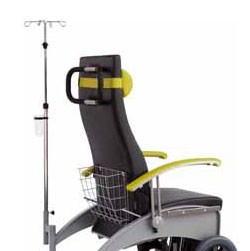
Electroencephalography
Welcome to our comprehensive selection of EEG devices and accessories for efficient and precise neurological diagnostics. Here you will find high-quality products from various manufacturers. Discover our diverse range and optimize your neurological diagnostic equipment park with the latest technologies and digital connection to your patient management software or your clinical information system (PVS or HIS).
What is an EEG?
An electroencephalogram (EEG) is a diagnostic test that measures electrical activity in the brain. Electrodes are placed on the scalp to record the electrical microcurrents generated by the brain cells. These currents are recorded in the form of wave patterns and evaluated by specially trained personnel, some of which are already AI-supported. An EEG is derived for a variety of reasons, and the exact timing may vary depending on individual circumstances.Applications in medicine
- Epilepsy diagnosis and management: EEGs are often used to identify abnormalities in the brain's electrical activity that may indicate epilepsy. An EEG helps medical staff to classify the type of epilepsy and to optimize the management of the disease (monitoring the effectiveness of the prescribed medication - anti-epileptic drugs).
- Disturbances of consciousness: If a person experiences repeated loss or disturbance of consciousness, an EEG in the presence of abnormal electrical activity can help pinpoint the cause.
- Sleep disorders: If sleep disorders are suspected, especially those that are regularly associated with unusual brain activity during sleep, a (sleep) EEG can be an important diagnostic component.
- Neurological diseases: An EEG can be carried out in the diagnosis and treatment monitoring of various neurological diseases such as stroke, migraine, multiple sclerosis and others.
- Changes in consciousness: If there are unexplained changes in a patient's mental status, such as confusion or disorientation, an EEG can help identify possible causes.
- Perioperative in neurosurgery: In some cases, an EEG is carried out before, during and after neurosurgical procedures to monitor how certain brain activities develop, as evidenced by the electrical currents they cause.


